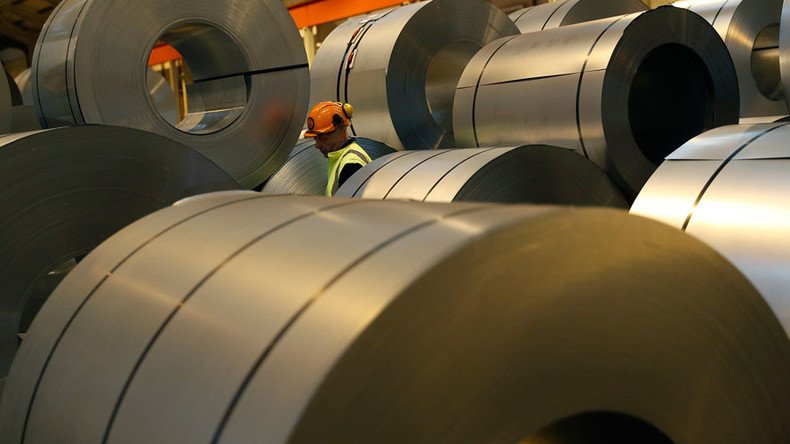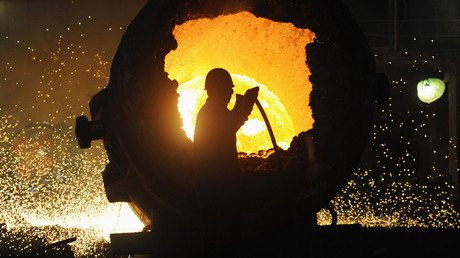Beijing warns of retaliation if Trump takes swing at Chinese steel

An investigation by Washington into steel price dumping by China and other exporters to the United States could trigger retaliatory measures against American finance and high-tech, reports the China Daily.
"By proposing an unjustified investigation into steel imports in the guise of safeguarding national security, the US seems to be resorting to unilateralism to solve bilateral and multilateral problems," wrote the state-affiliated daily.
The probe could hit Chinese steel exports, the newspaper noted.
"If the US does take protectionist measures, then other countries are likely to take justifiable retaliatory actions against US companies that have an advantage... in fields such as finance and high-tech, leading to a tit-for-tat trade war that benefits no one," it said.
The article urged the US to use the World Trade Organization settlement mechanism to resolve the steel dispute.
On Thursday, US President Donald Trump launched an investigation of China and other steel producers for dumping cheap steel products in the country.
In April, the European Commission hiked 'anti-dumping' duties on imports of hot-rolled flat steel products from China to 22.6 percent from 13.2 percent following a complaint from EU producers ArcelorMittal, Tata Steel and ThyssenKrupp.
According to the companies, China is selling steel at a loss due to overcapacity. At the beginning of last year, Beijing promised to cut 150 million tons of annual production over the next five years, but instead, it has only increased.













